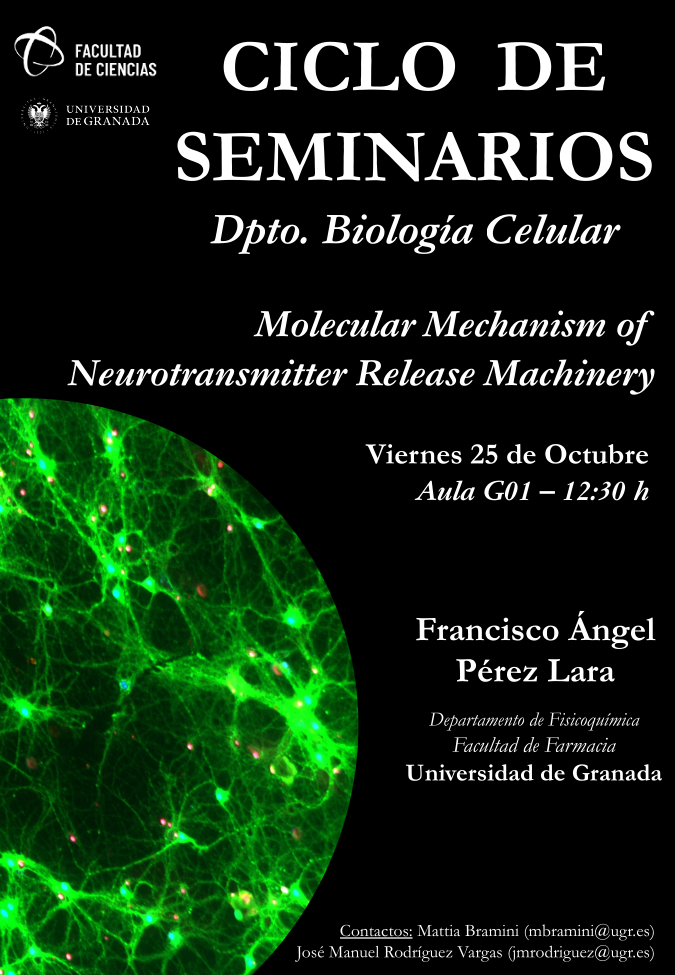Fecha: .
Hora: 12:30h.
Lugar: Aula G01 - Facultad de Ciencias.
Ponente: Francisco Ángel Pérez Lara – Universidad de Granada.
Transmission of information between neurons relies on the neurotransmitter release from synaptic vesicles into the synaptic cleft upon the influx of Ca2+, a process known as synaptic exocytosis. Synaptic exocytosis is mediated by the SNARE proteins syntaxin 1 (syx-1A), synaptobrevin-2 (syb-2), and SNAP-25, which form the core of the supramolecular fusion machinery. However, SNARE proteins require additional regulatory proteins to control the early steps of their assembly, such as Munc-18 and Munc-13, and proteins that are specialized for fast, calcium-dependent synaptic exocytosis, such as synaptotagmin and complexin. Additionally, after exocytosis, the SNARE complex needs to be disassembled by the NSF/α-SNAP complex to recycle the individual SNARE proteins for another round of neurotransmitter release.
Understanding the molecular mechanisms underlying synaptic vesicle exocytosis and recycling is a central goal of molecular neuroscience. Despite major efforts by many laboratories, we have still no coherent picture of the sequence of the protein associations and dissociations, and the related conformational changes. Our lab aims to characterize the sequence of protein associations and dissociations of the assembly and disassembly of the SNARE complex -the choreography-, and its regulation, providing an in-depth understanding of the synaptic vesicle exocytosis.
Contacto: Mattia Bramini y José Manuel Rodríguez Vargas .





